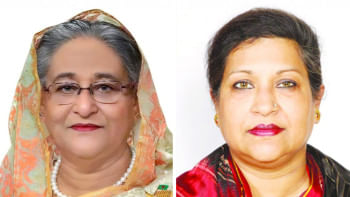Mojaheed verdict tomorrow

All eyes are on the Supreme Court which is set to deliver its verdict tomorrow on an appeal filed by convicted war criminal Ali Ahsan Mohammad Mojaheed challenging the death penalty and other sentences handed down to him.
A four-member SC bench, headed by Justice SK Sinha, is set to sit at 9:00am and pronounce the judgment at the beginning of tomorrow's court proceedings.
The delivery of the verdict is on the top of the court's cause list tomorrow.
This is the fourth time the Appellate Division of the SC is going to deliver a verdict on an appeal against a tribunal's judgment.
The same bench on May 27 fixed June 16 (tomorrow) for delivering the verdict after hearing the appeal for nine days. Three other judges of the bench are Justice Nazmun Ara Sultana, Justice Syed Mahmud Hossain and Justice Hasan Foez Siddique.
Both the state and the defence counsels expressed hope that the verdict would go in their favours.
In July 2013, the International Crimes Tribunal-2 sentenced the 67-year-old Jamaat-e-Islami secretary general to death, jailed him for life and sentenced him to five years in prison in five separate charges.
He filed the appeal with the SC on August 11 the same year, seeking acquittal from all the charges against him.
During the hearing of the appeal, Attorney General Mahbubey Alam prayed to the Appellate Division to uphold the Tribunal-2's verdict, saying the tribunal had given the judgement rightly after examining documents, evidence and statements of witnesses properly.
Mojaheed, a leader of Al-Badr and Islami Chhatra Sangha, had killed intellectuals including noted journalist Serajuddin Hossain in 1971, he argued.
On the other side, Mojaheed's lawyer SM Shahjahan told the SC that the prosecution had miserably failed to produce credible and trustworthy evidence and witnesses before the court against his client. Mojaheed was likely to be acquitted of all the charges brought against him, he argued.
The charge concerning the killing of intellectuals says the Pakistan army set up a camp at Mohammadpur Physical Training Institute, Dhaka, and members of Razakar and Al-Badr forces used to receive training there.
Mojaheed was also given death penalty for his involvement in the killing of the Hindus in Faridpur's Bakchar village in 1971.
The tribunal sentenced Mojaheed to life term imprisonment for killing composer Altaf Mahmud, Jahir Uddin Jalal, Badi, Rumi (son of Shaheed Janani Jahanara Imam), Jewel and Azad at Old MP Hostel at Nakhalpara in Dhaka and to five years' imprisonment for confining Ranjit Nath, a civilian, at a Bihari camp in Faridpur.
According to the verdict, Mojaheed led a "death squad" named Al-Badr that worked as an auxiliary force of the Pakistan army.
Mojaheed, who was made a technocrat minister during the BNP-Jamaat-led four-party alliance rule in 2001-2006, came under huge criticism for his audacious comment in 2007 that there were no war criminals in the country.


 For all latest news, follow The Daily Star's Google News channel.
For all latest news, follow The Daily Star's Google News channel. 



Comments